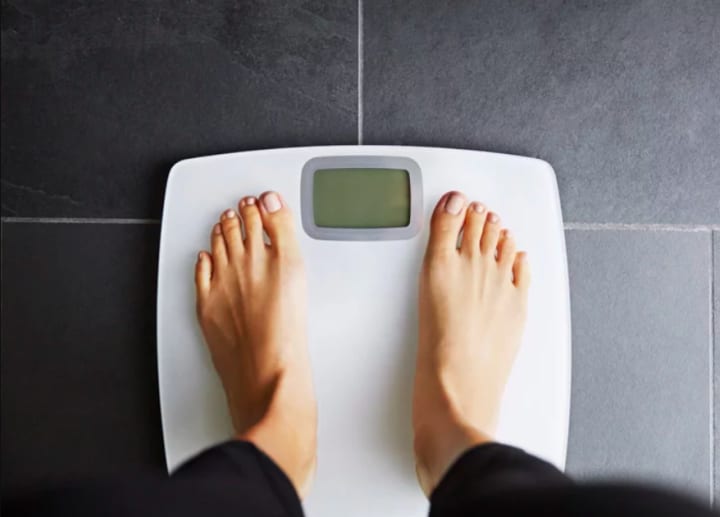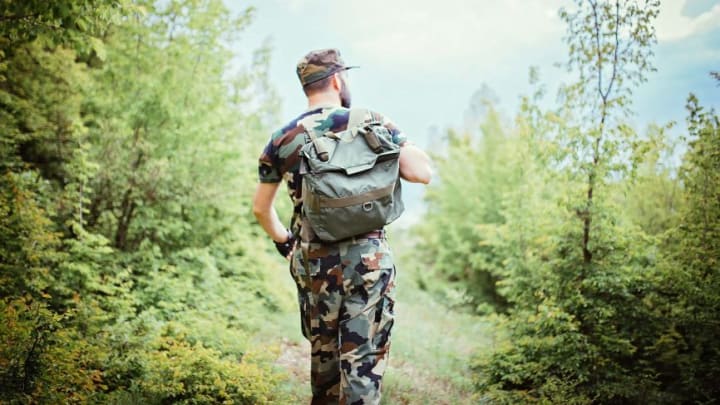10 Things to Consider When Training for Any Tactical Fitness Goals
Want to know everything before getting into any tactics fitness goals? These are the things to consider before getting into it.

When it comes to having any tactical fitness related goals, it’s required that you first pass a fitness test in order to get accepted into the program. Then comes a selection program that you have to endure in order to achieve the goal to join the ranks of military, special ops, or even police and fire fighter programs. For a successful candidate, he has to have the mindset that the select phase of the basic training is something that you have to do in order to get the desired military profession.
As for successfully navigating through the selection, it will depend on your preparation that you do 1-2 years prior. And in order to prepare yourself for any of the phyla challenges that will come your way within the program, these are the training for any tactical fitness goals. Remember, it's important to properly go through the physical part of the program in order to achieve the goal to join the ranks.
What is your athletic/activity history?

For starters, you have to understand if you've ever been in any athletic event or activity anytime in your life. Have you played a sport in high school? College? Did you do any manual labor jobs during the summer or after school?
These questions mainly revolve around if you were ever active sometime in your life. And the questions tell the tactical fitness professional whether or not you have a foundation of teamwork, mission oriented fitness training, and your work capacity. They want to know if you've ever truly used your muscles and your strength in anything.
Are you a strength or endurance athlete?
According to your athletic history, this will determine if you’re more of a strength or endurance athlete. There’s a fine line between doing sports that consisted of lifting heavy weights or sprinting. Or you can possibly be both, which is like many athletes who possess both strength and endurance.
From the training for any tactical fitness goals, it’s important that you have obvious strengths and weaknesses with future military testing events. When you know what your strengths and weaknesses are, this will benefit your military test taking. However, the majority of ideal candidates for most special ops programs usually have a background in both strength and endurance.
Are there previous years of training or not?
It’s also significant to acknowledge if you’re currently doing any training. They may ask if you’ve been training hard and what are your strategies and techniques in training, or whether you’ve been running long distance or lifting heavy weights. They’ll also ask if you haven’t done any physical activity at all.
All of your answers to these questions can actually determine how long your training program should be. If you’re pretty athletic, it won’t be as long. But if you haven’t worked out in a decade, expect for a long training session to strengthen your skills. This is also one of the training for any tactical fitness goals.
What is your current height and weight?

There’s also a high chance that you’ll have to lose a significant amount of weight when you’re put into your branch of service. You might also have to lose weight from the training program, because you’ll probably be doing a lot of exercises like running, sit-ups, pushups, etc. There’s a chance that if you’re small, you might need some muscle mass to put onto your body.
However, if you’re fairly bigger than the average body, there’s also a chance that you’re going to have to lose some weight. While there isn’t an ideal height and weight, it’s the results that they’re mainly focusing on. So, you have to be light enough to run, jump, climb, and overall move your body around. And you also need the strength to accomplish any physical tasks.
Do you have any strengths or weaknesses?
Among the training for any tactical fitness goals, knowing your strengths and weaknesses is super important when it comes to the training. When you understand what your strengths are, this benefits your training. And as for your weaknesses, you'll know which characteristics about yourself to strengthen.
You never want to walk into a training blindly. You always want to try your hardest in tasks that you know you're good at. But this also goes for your worst tasks and exercises. If you've mastered certain exercises, exceed in it more. However, mainly focus on your weakness. You never want your weaknesses to weigh you down in the midst of training.
There are specifics to get to your goal.
What is the specific fitness test that you’re competing against others in order to get the select program? This is crucial in order to be accepted into the program. You have to ace the fitness test first before you achieve your goal challenge.
Therefore, your entire training plan should revolve around the workouts that will benefit your fitness test. Always develop strategies that will certainly help you out during the fitness tests. So when it’s time for the test, you’ll have methods and tips to back you up and all of your training was perfectly based on the fitness test.
There are specifics to get through your goal.

Now comes the specifics when it comes to training for any tactical fitness goals. These specifics will require you to make your body stronger in order to endure the heavy challenges and events during the training. You should also practice many of the specific challenges that will be an advantage in your fitness test.
From rope climbing to soft sand runs, mountain rucks, swimming for miles, obstacle courses, and others, you want to be able to succeed in them all. Build a strong, fast, and capable body so you can endure several weeks or possibly months of this form of training. And developing a proper body is certainly one of the goals you should focus and take time on.
You're going to have to run... a lot.
The majority of training programs do require running… and a lot of it. Since running basically exercises your entire body, this is important during the training. You’ll be running way more in the select phase than you will ever run in your entire life. Yes, it sounds like a challenge, and it is. But don’t be alarmed, because you can definitely train yourself to be an amazing runner.
Don’t fear that you’ll lose some of your strength due to the high amount of running miles you’ll be doing several months prior to the selection. Failing to run fast enough can actually meet the standard or not having enough running under your belt in order to endure training without an injury are highly common reasons to an unsuccessful try in achieving your dream job.
You'll need swimming skills, too.
No, this doesn’t mean you need to be an Olympic-star swimmer. Among the training for any tactical fitness goals, you need to be able to be a great swimmer. To become a member of a special ops unit, everyone must be able to handle the water like a professional.
There are ways you can be great at handling the water. You have to be swimming faster than average, treading water, relaxing when submerged, comfortable to scuba dive, and other water skills that are essentially part of any program that’s related to water. Most of the programs that involve a lot of water are the Navy SEAL, Diver, Rescue Swimmer, and others.
You should have rucking ability.

Lastly, from the training for any tactical fitness goals, you should have rucking ability. Even though you might be an amazing runner, can you put on 50 or more pounds and run for multiple miles? Rucking in the military is basically like marathon league events that require knowledgeable hydration, electrolytes, nutrition, and foot care.
For starters, you have to possess enough strength to carry a ruck. Then, gain the endurance to carry it for a long time. This is the part where you do need strength and endurance. The two go hand in hand when it comes to certain training during the fitness test.
About the Creator
James Porterson
Former obese teen turned nutritionist. Enjoys writing about staying active and proper nutrition.






Comments
There are no comments for this story
Be the first to respond and start the conversation.